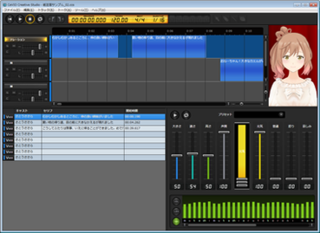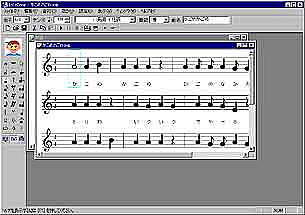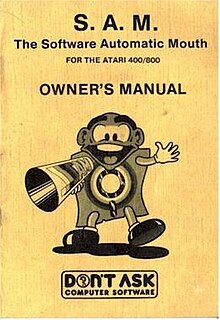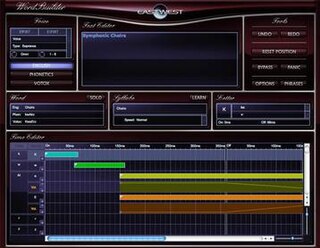 W
WAutomatik Text Reader is a free and open source plug-in for Firefox providing text-to-speech functions available from the Mozilla Add-ons collection. It supports multiple languages and accents and is capable of autonomously recognizing the language of written text and activating the respective speech synthesis engine. Amongst the peculiar features, the voice speed is adjustable and the text selection is automatic. In addition to the unique features users will find that the interface is very simple to use; having only 4 buttons to operate it.
 W
WCeVIO is the collective name of a range of computer software projects, including Vision and Creative Studio. CeVIO was made to assist in the creation of user-generated content. It works via text-to-speech method.
 W
WLaLaVoice (ララボイス) is a vocal synthesizer designed for the Japanese language.
 W
WNIAONiao Virtual Singer, is a freeware vocal synthesizer application built for Chinese and is the first singing vocal synthesizer made in China.
 W
WRealivox is a voice synthesizer.
 W
WSoftware Automatic Mouth, or S.A.M., is a speech synthesis program developed by Mark Barton and sold by Don’t Ask Software. The program was released for the Atari 8-bit family, Apple II, and Commodore 64. Released in 1982, it was one of the first commercial all-software voice-synthesis programs.
 W
WSymphonic Choirs is a vocal synthesizer and vocal library software created by EastWest, designed to imitate an entire vocal choir. The content was created by producers Doug Rogers and Nick Phoenix with recording engineer Keith O. Johnson for EastWest. Recorded in a real concert hall, the software initially had two styles of producing a result, the first being the "PLAY" engine version and the second being the "WordBuilder". The WordBuilder works by the user typing in what they want the software to recreate and it playing back the words.
 W
WVOCALINA (보카리나) is a "text to speech" vocal synthesizer, it was the first music speech synthesis technology to be developed focus on the Korean language and is focused on singing. It is designed to be easy to use and produce high quality singing results.
 W
WVocaloid 2 is a singing voice synthesizer and the successor to the Vocaloid voice synthesizer application by Yamaha. Unlike the first engine, Vocaloid 2 based its output on vocal samples, rather than voice analysis. The synthesis engine and the user interface were completely revamped, with Japanese Vocaloids possessing a Japanese interface, as opposed to the previous version, which used English for both versions. It is noteworthy for introducing the popular character Hatsune Miku.
 W
WVocaloid 3 is a singing voice synthesizer and successor to Vocaloid 2 in the Vocaloid series. This version of the software is a much more expansive version, containing many new features, three new languages and many more vocals than past software versions combined.
 W
WVocaloid 4 is a singing voice synthesizer and successor to Vocaloid 3 in the Vocaloid series.
 W
WVocaloid 5 is a singing voice synthesizer and successor to Vocaloid 4 in the Vocaloid series.